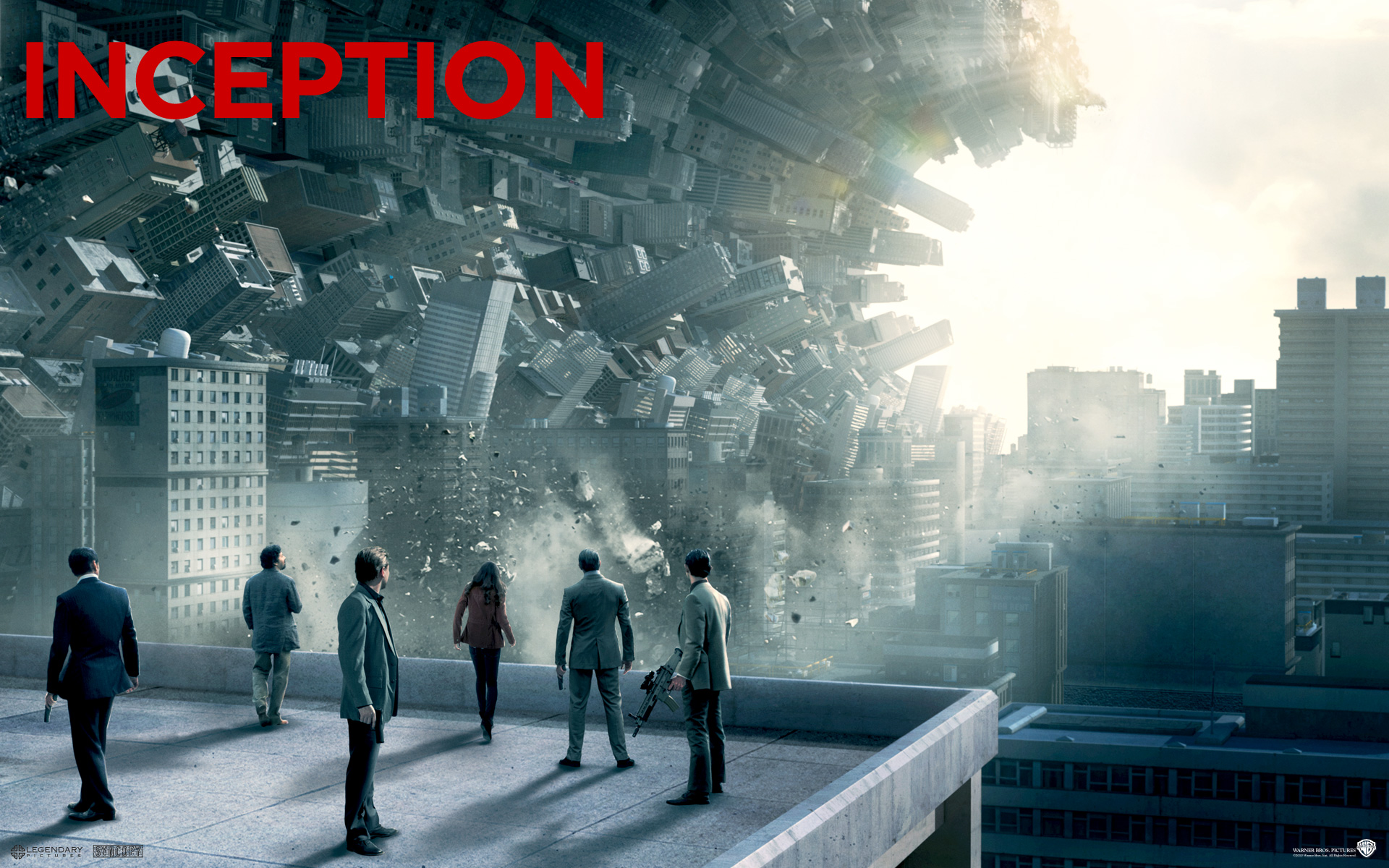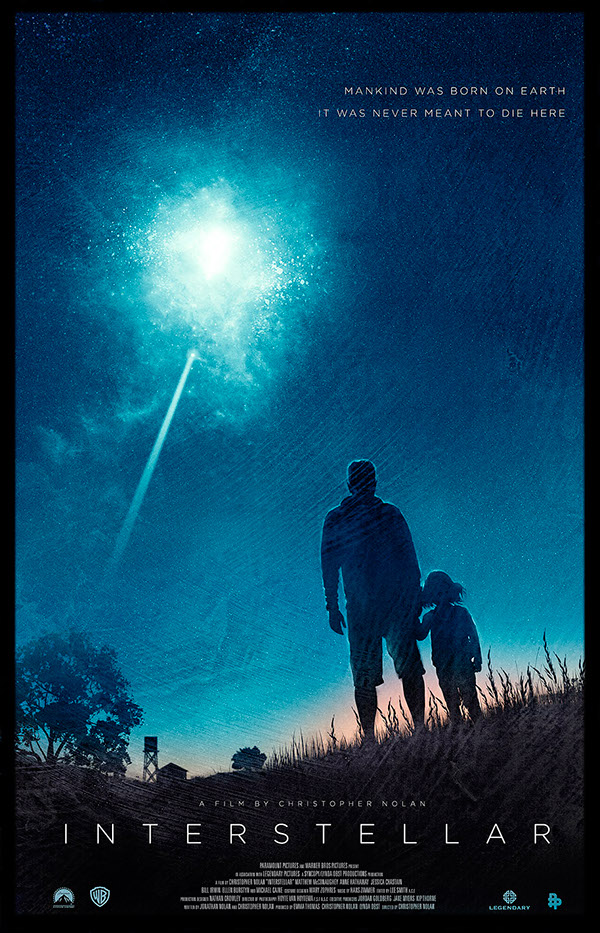Director: Quentin Tarantino
Tarantino's purest love letter to 1960s B-list action leading men and the stuntmen who helped make them, Once Upon a Time...In Hollywood is an expertly-crafted - if hardly urgent - piece of cinema.
Taking place over the course of several month during the first half of a semi-fictional 1969 Los Angeles. It follows fictional actor Rick Dalton (Leonardo DiCaprio) and his closest friend and stuntman fill-in Cliff Booth (Brad Pitt). Dalton is a former leading action star of B-level (or A-minus at best) movies, but his star has faded to the point that he is now playing lesser roles as arch villains in TV shows. Dalton's feelings of inadequacy are brought into even clearer focus when the house next to his is bought by arguably the hottest couple in Hollywood - the very real director Roman Polanski and his young, beautiful wife, actor Sharon Tate. While Dalton's personal story unfolds, a much more sinister situation - also based on real events - is brewing not far outside of L.A., where Charles Manson and his "family" of violent and devoted followers are hatching their plot to send a murderous message to the wealthy and glamorous of the nearby City of Angels.
It's been nearly a week since I watched Once Upon a Time...In Hollywood, and the more I dwell on it, the more I like it. Back when I saw Tarantino's The Hateful Eight, I wrote in my review about how I would love to see if Tarantino could tone himself down enough to do something a little more grounded, such as his underrated Jackie Brown back in 1997. Though this new movie certainly isn't as small-scale or grounded as that earlier picture, this one has far more authentic feeling and far fewer over-the-top, cartoonish elements to it than any movie he's done since then. Rather than the mythically simple and homicidal characters populating movies like The Hateful Eight or, to a lesser extent, Inglorious Basterds, this latest picture focuses on a character who evokes actual empathy and even sympathy, even if it is often done in humorous ways. Rick Dalton may not be the most admirable of people, but there is a genuine vulnerability to him which makes him different from nearly any Tarantino protagonist which I can think of.
The story itself is a rather fun "alternate history" re-imagining of the infamous Manson Family murders of Sharon Tate, her unborn child, and a family friend who happened to be staying at her and husband Roman Polanski's home while Polanski was away working. I also have to cite NPR film critic Justin Chang for articulating something which I only vaguely realized - that DiCarpio's Nick Dalton character can be seen as a version of Clint Eastwood, had Eastwood never really hit it big in Sergio Leone's "Man With No Name" spaghetti westerns of the mid-1960s. The result is a tale which, though obviously the stuff of pure fantasy in its liberties, is an extremely satisfying combination that probably only Quentin Tarantino could have even imagined combining in a movie.
If you know anything about the cast, you shouldn't be surprised to be told that the acting is outstanding. Though most of the secondary characters play relatively limited roles, they all do them perfectly well. From Margot Robbie's turn as the wide-eyed, charming Sharon Tate to Mike Mo's performance as the iconic Bruce Lee, to all of the actors portraying the vicious little hippies at Charles Manson's eerie compound, everyone enhances the movie. Brad Pitt unsurprisingly nails his turn as straight-talking tough-guy Cliff Booth, even if the role doesn't require much of him beyond a certain easy swagger and smugness. Leonardo DiCaprio, though, has yet again proven to me that he has long gone far, far beyond the pretty boy, teeny-bopper idol whom we all saw back in the 1990s. He may spend a majority of his screen time giving us laughs with his desperation and depression over his fading stardom, but there are several wonderfully captivating sequences where he breaks down in anger or sadness, and DiCaprio completely sells every moment of it. I will all but guarantee that he will receive an Oscar nomination for this role, strong as it is.
There weren't many things that I didn't like about the movie, but a couple come to mind. One is simply that there were a few sequences that felt as if they were drawn out a bit too long. Not terribly so, but noticeably so. In particular, the moments when Cliff Booth shows up at the Manson Family compound, senses something amiss, and expresses his desire to sniff around a bit. There is certainly genuine tension built here, but at a certain point a few of the scenes felt as if they could have been trimmed a bit here or there. There were a few other moments such as this, but they hardly ruin the overall pace and fun of the film.
The only other "issue" I have with the movie is more of an observation that can be leveled at any Tarantino flick, and it is that there is no greater purpose to the film beyond being a love letter to a bygone era as well as a reminder of a brutally dark moment in U.S. history. Tarantino most likely would agree with me, but his films are never about more than watching strong, entertaining characters get mixed up with each other. There's never any greater message, deeper thoughts involved, or even any especially creative cinematic artistry. Tarantino is just exceptionally good at a variety of already-established film techniques, and he knows how to tell a ripping good story about amusing characters. In the sense that he knows how to find phenomenal cinematographers, costume designers, actors, and editors to bring his vibrant stories to life is a testament to how good a director he is, even if he offers very little in the way of intellectual or spiritual stimulation. Alas, it is a movie about movies, and that always plays well with critics and movie-lovers such as me.
I'll most likely go out to see this one again on the big screen, and I may even be able to convince my wife to join me.
Tarantino's purest love letter to 1960s B-list action leading men and the stuntmen who helped make them, Once Upon a Time...In Hollywood is an expertly-crafted - if hardly urgent - piece of cinema.
Taking place over the course of several month during the first half of a semi-fictional 1969 Los Angeles. It follows fictional actor Rick Dalton (Leonardo DiCaprio) and his closest friend and stuntman fill-in Cliff Booth (Brad Pitt). Dalton is a former leading action star of B-level (or A-minus at best) movies, but his star has faded to the point that he is now playing lesser roles as arch villains in TV shows. Dalton's feelings of inadequacy are brought into even clearer focus when the house next to his is bought by arguably the hottest couple in Hollywood - the very real director Roman Polanski and his young, beautiful wife, actor Sharon Tate. While Dalton's personal story unfolds, a much more sinister situation - also based on real events - is brewing not far outside of L.A., where Charles Manson and his "family" of violent and devoted followers are hatching their plot to send a murderous message to the wealthy and glamorous of the nearby City of Angels.
It's been nearly a week since I watched Once Upon a Time...In Hollywood, and the more I dwell on it, the more I like it. Back when I saw Tarantino's The Hateful Eight, I wrote in my review about how I would love to see if Tarantino could tone himself down enough to do something a little more grounded, such as his underrated Jackie Brown back in 1997. Though this new movie certainly isn't as small-scale or grounded as that earlier picture, this one has far more authentic feeling and far fewer over-the-top, cartoonish elements to it than any movie he's done since then. Rather than the mythically simple and homicidal characters populating movies like The Hateful Eight or, to a lesser extent, Inglorious Basterds, this latest picture focuses on a character who evokes actual empathy and even sympathy, even if it is often done in humorous ways. Rick Dalton may not be the most admirable of people, but there is a genuine vulnerability to him which makes him different from nearly any Tarantino protagonist which I can think of.
The story itself is a rather fun "alternate history" re-imagining of the infamous Manson Family murders of Sharon Tate, her unborn child, and a family friend who happened to be staying at her and husband Roman Polanski's home while Polanski was away working. I also have to cite NPR film critic Justin Chang for articulating something which I only vaguely realized - that DiCarpio's Nick Dalton character can be seen as a version of Clint Eastwood, had Eastwood never really hit it big in Sergio Leone's "Man With No Name" spaghetti westerns of the mid-1960s. The result is a tale which, though obviously the stuff of pure fantasy in its liberties, is an extremely satisfying combination that probably only Quentin Tarantino could have even imagined combining in a movie.
 |
| Very much of the story is a buddy movie between Rick and Cliff, and the chemistry between the two is endearing. |
There weren't many things that I didn't like about the movie, but a couple come to mind. One is simply that there were a few sequences that felt as if they were drawn out a bit too long. Not terribly so, but noticeably so. In particular, the moments when Cliff Booth shows up at the Manson Family compound, senses something amiss, and expresses his desire to sniff around a bit. There is certainly genuine tension built here, but at a certain point a few of the scenes felt as if they could have been trimmed a bit here or there. There were a few other moments such as this, but they hardly ruin the overall pace and fun of the film.
The only other "issue" I have with the movie is more of an observation that can be leveled at any Tarantino flick, and it is that there is no greater purpose to the film beyond being a love letter to a bygone era as well as a reminder of a brutally dark moment in U.S. history. Tarantino most likely would agree with me, but his films are never about more than watching strong, entertaining characters get mixed up with each other. There's never any greater message, deeper thoughts involved, or even any especially creative cinematic artistry. Tarantino is just exceptionally good at a variety of already-established film techniques, and he knows how to tell a ripping good story about amusing characters. In the sense that he knows how to find phenomenal cinematographers, costume designers, actors, and editors to bring his vibrant stories to life is a testament to how good a director he is, even if he offers very little in the way of intellectual or spiritual stimulation. Alas, it is a movie about movies, and that always plays well with critics and movie-lovers such as me.
I'll most likely go out to see this one again on the big screen, and I may even be able to convince my wife to join me.





